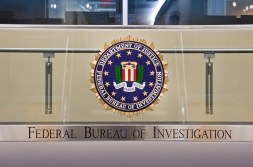Warrant: FBI argues that hackers could have targeted Anthony Weiner

To secure a search warrant for electronic devices owned by politician Anthony Weiner, the FBI argued that hackers could break into his computer and steal private communications relevant to an ongoing investigation, according to a newly unsealed warrant filing from October.
The affidavit shows that law enforcement was concerned that an outside party may breach Weiner’s computer and access information connected to a criminal investigation into Clinton’s use of a private, unauthorized email server to store and transmit classified U.S. government documents. Weiner, a former congressman under investigation himself for allegedly exchanging sexually explicit messages with a minor, is the former spouse of Clinton aide Huma Abedin.
“A complete forensic analysis and review of the subject laptop will allow the FBI to determine if there is any evidence of computer intrusions into the subject laptop, and to determine if classified information was accessed by unauthorized users or transferred to any other unauthorized systems,” the request reads.
Court documents show that the FBI requested the warrant because it believed Weiner’s laptop might contain evidence relevant to the Clinton case, including potential correspondences between former State Department officials discussing sensitive information. Because Weiner’s personal computer was never recognized or authorized to receive classified information, the systems did have appropriate security measures installed, the FBI said.
Just two weeks before the 2016 presidential election, FBI Director James Comey told members of Congress that the Bureau had discovered evidence that could be “pertinent” to a probe into Clinton’s email server from an unrelated case.” This case — for which the Southern District of New York granted the aforementioned warrant — looked into the allegations that Weiner was sending nude photos to an underage girl.
In the end, officials determined that Weiner’s computer carried no new evidence relevant to Clinton’s use of a private server. As a result, the 2016 Democratic presidential nominee was cleared by the FBI just 48 hours before Election Day. Clinton campaign chairman John Podesta later blamed the FBI for “interfering with the election” and causing his candidate to lose.
Clinton had been cleared once already by the FBI in the email-server case, in July.





